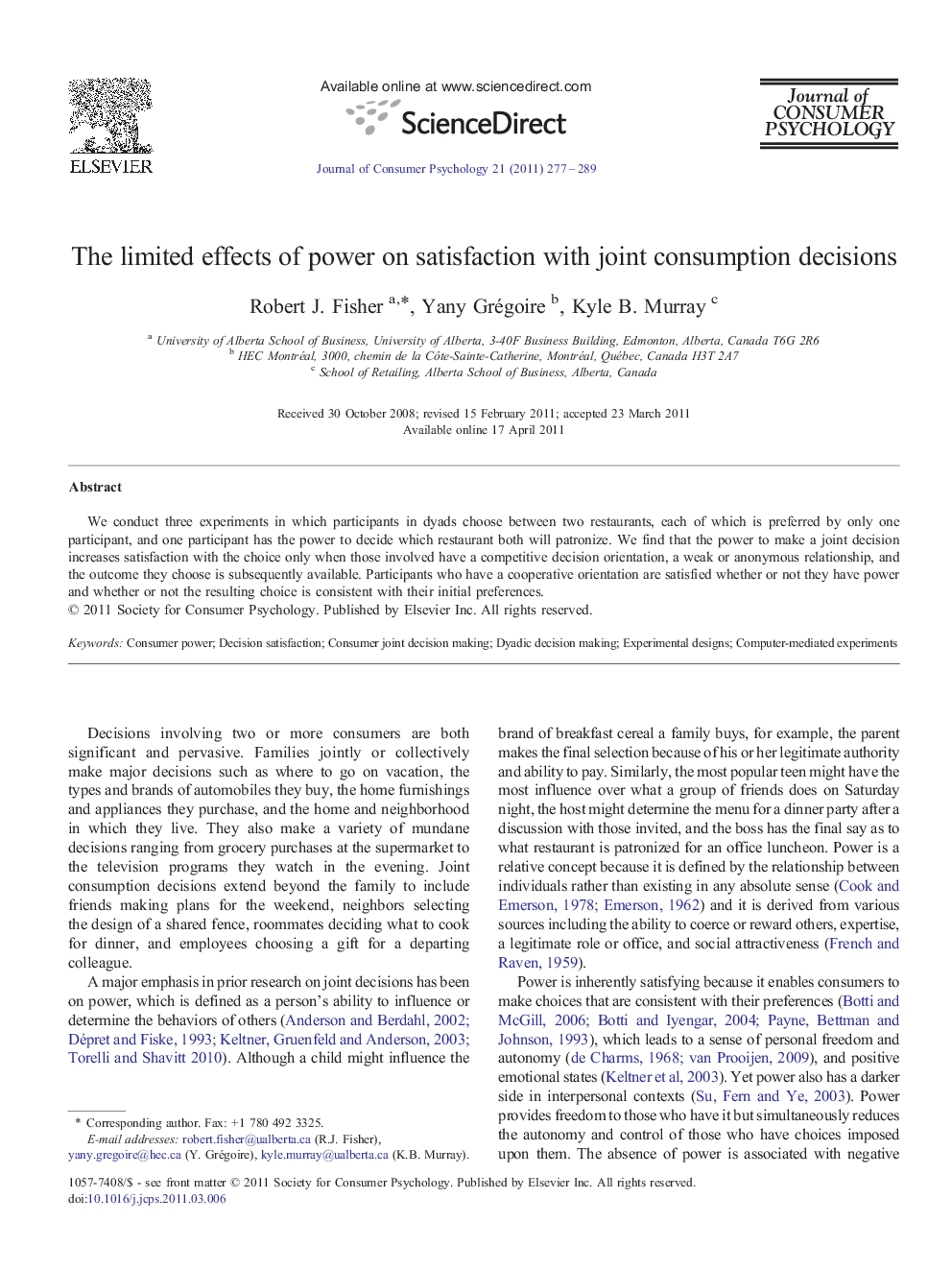| Article ID | Journal | Published Year | Pages | File Type |
|---|---|---|---|---|
| 882276 | Journal of Consumer Psychology | 2011 | 13 Pages |
We conduct three experiments in which participants in dyads choose between two restaurants, each of which is preferred by only one participant, and one participant has the power to decide which restaurant both will patronize. We find that the power to make a joint decision increases satisfaction with the choice only when those involved have a competitive decision orientation, a weak or anonymous relationship, and the outcome they choose is subsequently available. Participants who have a cooperative orientation are satisfied whether or not they have power and whether or not the resulting choice is consistent with their initial preferences.
Research highlights► Power is satisfying only under very limited circumstances for joint decisions. ► A cooperative process makes power and the final choice irrelevant to satisfaction. ► Power has a negative effect on satisfaction when a choice is found to be unavailable. ► Introduces a unique online methodology for studying dyadic decision making.
